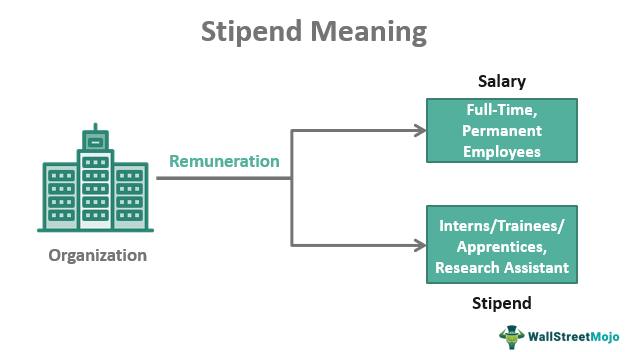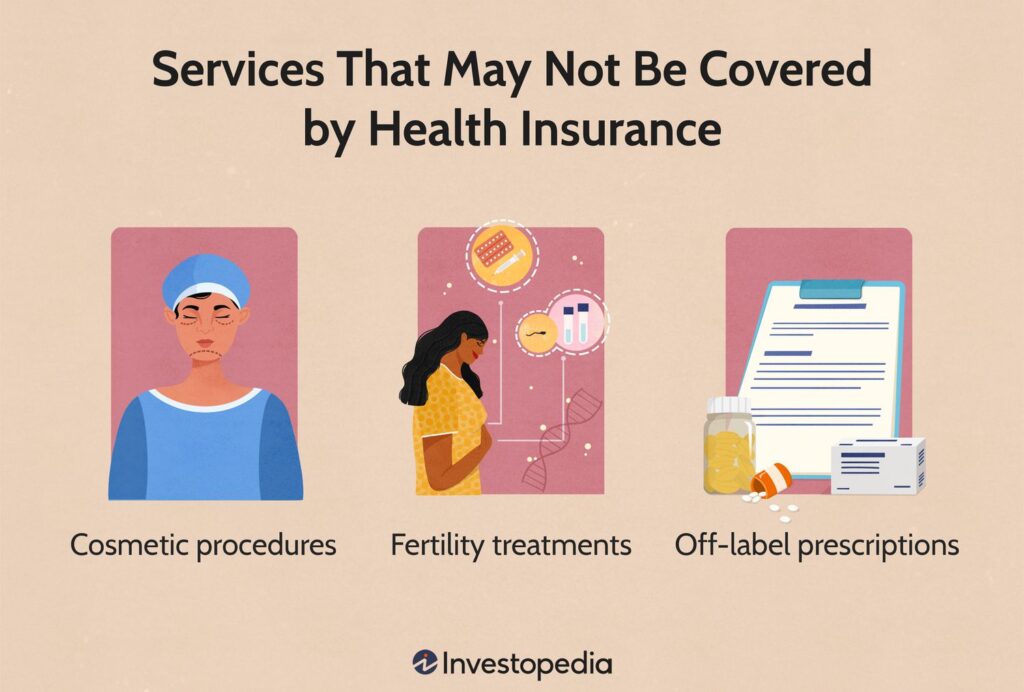University stipends vary; some cover health insurance fully or partially, while others require students to secure their own health insurance plans based on their program.
This article explores what a university stipend is, if it typically covers health insurance, and what students can do to secure affordable health coverage during their studies.
What Is a University Stipend?
A university stipend is a financial grant provided to students, generally in graduate programs, to support them through their studies. Unlike wages from regular jobs, stipends help cover basic expenses without requiring specific work hours, letting students focus on education or research. Universities may issue stipends monthly, biannually, or annually.
Types of Stipends for Students:

Research Stipends:
Research stipends support students working on faculty-led research projects, usually in fields such as science, engineering, or social studies. The stipend amount often depends on the research budget, academic level, and the institution’s policies. Research stipends can sometimes include health insurance if it’s part of a larger grant or fellowship.
Teaching Stipends:
Teaching stipends are offered to students who assist professors as teaching assistants (TAs). These students help with grading, tutoring, and holding lab sessions. Teaching stipends can differ by university, and some may partially or fully cover health insurance. Check the university’s teaching assistant policy for specifics on coverage.
General Living Stipends:
General living stipends offer financial support without specific teaching or research duties attached. They’re common in arts, humanities, and social sciences programs. However, these stipends usually don’t cover health insurance, so students may need to arrange their own coverage or find alternative health options through the university
Why Is Health Insurance Important for Students?
Health insurance protects students from high medical expenses, which can be challenging to manage without coverage. For international students, health insurance is often essential since they lack access to local public healthcare. Most universities require it to guarantee students can afford necessary medical care, reducing financial stress and ensuring well-being.
Also read: What Are Home Health Aides Not Allowed To Do – A Guide For Families!
Benefits of Health Insurance:
Health insurance offers financial peace by covering essential services, regular checkups, and emergencies. A manageable monthly premium helps students avoid large, unexpected healthcare costs. By maintaining health coverage, students can stay healthier, which minimizes disruptions in their studies caused by health issues, allowing them to focus more on their education.
Do University Stipends Cover Health Insurance?

University stipends may or may not cover health insurance; it largely depends on the institution and the program. Some stipends fully cover health insurance costs, while others don’t. Certain programs or fellowships may offer partial coverage. Understanding your specific program’s policy can help you budget appropriately for health expenses.
Full Coverage:
In universities that offer full health insurance coverage, health fees are often deducted directly from the stipend. This arrangement reduces financial worries as students don’t need separate insurance payments. Full coverage stipends are more common in highly funded research programs or prestigious fellowships where health coverage is included.
No Coverage:
For stipends that don’t cover health insurance, students must either join a university-provided plan or purchase private insurance. In these cases, budgeting for health insurance becomes essential, as it can significantly impact monthly living expenses. Check with your program if additional financial aid options are available.
Partial Coverage:
Partial coverage means the university may subsidize some of the health insurance costs, reducing the total expense. For instance, some universities cover basic health services, but students need to pay for specialized care or additional services. Students should review what’s included to avoid unexpected healthcare costs.
Also read: What Health Disparities Are In Central New York – A Complete Guide!
How to Find Out If Your Stipend Covers Health Insurance:
To understand what your stipend covers, it’s important to gather all the details. Here’s how:
Step 1: Check University Resources
Most universities list information about stipends and health insurance on their official websites, particularly in sections for prospective or current students. Check the financial aid or graduate program pages to find out if insurance is included.
Step 2: Contact University Offices
The financial aid office or graduate department can provide specific answers about stipend packages and health insurance policies. If you are unsure, they can guide you through the details.
Step 3: Speak with Other Students
Students already in the program are often a great source of information. They can share their experiences with stipends and health insurance to help you understand what to expect.
Health Insurance Options for Students Without Coverage:

If your stipend doesn’t cover health insurance, several options are available for securing affordable coverage.
University Health Insurance Plans:
Many universities provide discounted health insurance tailored to essential student needs. Though typically limited in coverage, these plans are cost-effective, with many services conveniently located on campus. For basic medical services, university insurance is often more affordable and accessible than other options, making it a popular choice for students without private coverage.
Private Health Insurance:
Private health insurance offers broader, specialized care but tends to be more expensive than university plans. This option is ideal for students requiring services not available through university insurance. However, students should budget carefully, as private health insurance premiums and out-of-pocket costs can quickly add up and impact monthly finances.
Government Health Insurance:
International students may qualify for public health insurance in countries with government healthcare, like the UK and Canada. These plans vary significantly based on country-specific policies, so students should check eligibility with local authorities or their universities. This option offers affordable, essential healthcare coverage for students studying abroad.
Family Health Insurance Plans:
Many students can stay on their family health insurance policies until a certain age, which can be cost-effective. Coverage may differ if studying far from home, so students should confirm details with the insurance provider. This option is helpful for students who qualify, as it reduces additional health insurance expenses.
Also read: Claims Processing Issues Health Insurance – A Step-By-Step Guide!
Deductions for Health Insurance from Stipends:
When a university stipend covers health insurance, it’s common for the stipend to have deductions. This means health insurance fees are subtracted from the total stipend amount before it is paid to the student.
- Automatic Deductions: Some universities automatically deduct health insurance costs from stipends, which means students do not need to worry about separate payments.
- Separate Payments: In cases where health insurance isn’t included in the stipend, students pay for health insurance separately, and they may need to manage these additional costs monthly or quarterly.
- Program-Dependent Coverage: Some graduate programs, such as those with high research funding, may offer higher stipends that include health insurance, whereas smaller programs might not provide coverage at all.
Budgeting for Health Insurance Costs:

Proper budgeting ensures that you manage health insurance costs smoothly, even if they’re not fully covered by your stipend.
Estimate Monthly Health Costs:
Calculate expected monthly expenses for health insurance premiums, co-pays, and out-of-pocket costs. Having a clear estimate helps you budget effectively and avoid unexpected expenses. By knowing your monthly health-related costs, you can plan finances better and ensure your stipend covers essential needs without disruptions.
Seek University Assistance:
Many universities offer emergency funds or subsidies for students struggling with health expenses. Contacting the financial aid office can reveal available resources like grants or temporary aid. This support can help cover unexpected health insurance costs, providing financial relief during challenging periods.
Choose a Basic Insurance Plan:
A basic health insurance plan covers essential medical services and often has lower premiums. While coverage may be limited, it ensures protection for emergencies and primary care needs. For students on tight budgets, a basic plan can be a practical and cost-effective health insurance option.
Also read: Dentists Who Take Total Health – A Comprehensive Guide!
Options If Your Stipend Isn’t Enough for Health Insurance:
When stipend support isn’t enough for health insurance, students can explore alternative options.
Apply for Financial Aid:
Financial aid offices may offer grants or emergency funds to assist with health insurance costs. Check with your university for available programs and eligibility requirements. This aid can provide financial relief, especially for students whose stipends don’t fully cover necessary health expenses.
Consider Part-Time Work:
If permitted, part-time work can supplement your income to cover health insurance and essential living costs. However, confirm with your program, as some stipends restrict employment. A part-time job can be an effective way to manage expenses while balancing studies and finances.
Look for Scholarships or Grants:
Health-related scholarships or grants are available through various organizations and nonprofits, specifically for student health expenses. Research opportunities that support wellness and health, as these funds can help reduce the financial burden of health insurance, allowing students to focus on studies without financial stress.
FAQ’s
1. Do all university stipends cover health insurance?
No, coverage varies by institution and program. Some stipends cover health insurance fully or partially, while others do not, requiring students to seek their own plans.
2. How can I find out if my stipend includes health insurance?
Check your university’s financial aid resources, contact the graduate department, or speak with current students to understand if health insurance is included.
3. What are my options if my stipend doesn’t cover health insurance?
You can consider university health insurance plans, private insurance, government healthcare (if eligible), or staying on a family health insurance plan if allowed.
4. Does health insurance affect my monthly stipend amount?
If the stipend includes health insurance, fees might be deducted directly. For stipends without insurance coverage, you’ll need to budget for separate payments.
5. Are there financial aids available for health insurance costs?
Yes, some universities offer emergency funds, grants, or scholarships to help students cover health insurance, especially if the stipend is insufficient.
Conclusion
In conclusion, university stipends vary widely in their coverage of health insurance, with some providing full or partial benefits while others do not include it at all. Students should carefully review their stipend policies and explore options for securing affordable health coverage if necessary. Understanding these aspects is crucial for effective financial planning during their studies.




